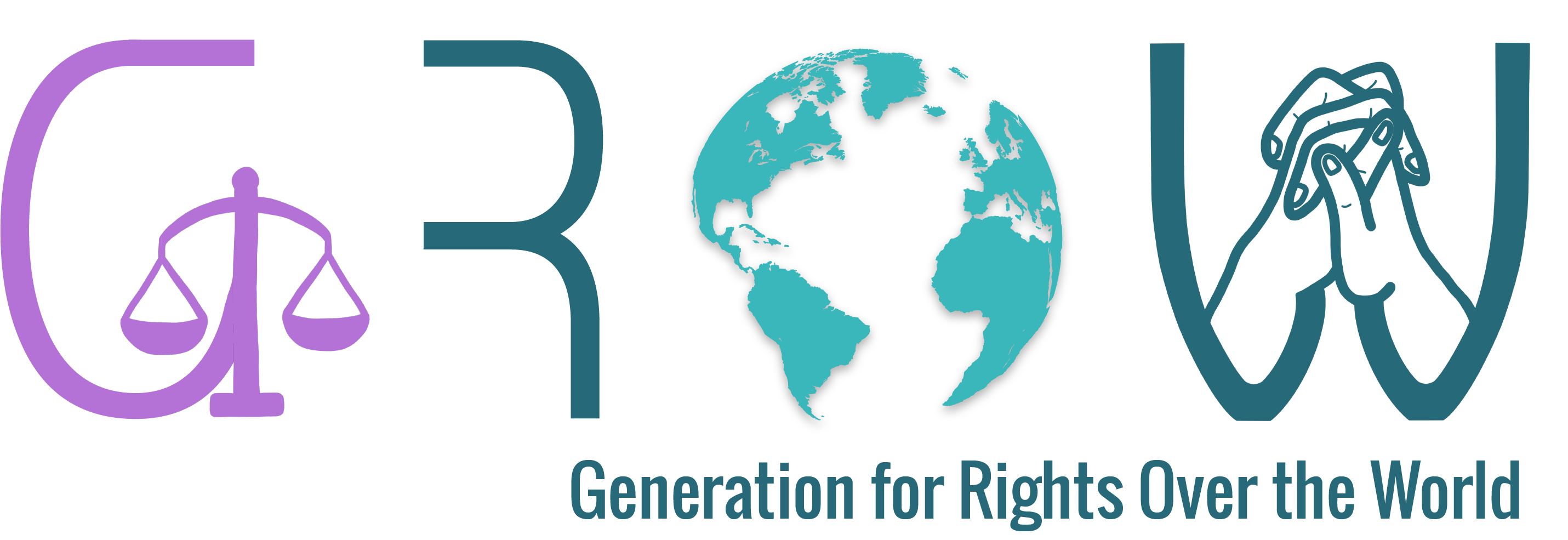In one of our articles on the book Pour elles toutes. Femmes contre la prison (“To all of them. Women against prison”) by Gwenola Ricordeau (Lux, 2019), the criticisms made of the penal system as it currently exists were discussed, in particular its inability to respond to the needs of victims, and avenues for “emancipating oneself from the penal system and building autonomy” (chapter 5 of the book) were presented. Although not very developed in the book, the author mentions restorative justice.
What is Restorative Justice?
Criminal justice, in the form we know, has a central punitive dimension, following a failure to respect the rules of society. However, for victims, receiving money, or knowing that their abuser is being punished, is not enough to help them get better. On the other hand, for the perpetrator, being accused and convicted does not mean feeling responsible and understanding the repercussions of their act. Indeed, perpetrators may think that life goes on, that they pay for what they have done, are punished, perhaps even go to prison, but that for victims, once the trial is over, the story is over and they can move on. This is far from being the case.
When an offence is committed, it affects the victim, the perpetrator and the social link. Restorative justice mechanisms aim to repair these three aspects. It is a question of making the perpetrators responsible and repairing the victims as well as the perpetrators, resuming a normal life and possibly limiting recidivism.
In France, restorative justice entered the code of criminal procedure through the law of the 15 August 2014 on the individualisation of sentences and reinforcing the effectiveness of criminal sanctions, a law carried by the then Minister of Justice, Christiane Taubira. According to Article 10-1 of the Code of Criminal Procedure, “during any criminal proceedings and at all stages of the proceedings, including during the execution of the sentence, the victim and the perpetrator of an offence, provided that the facts have been acknowledged, may be offered a restorative justice measure (…), any measure enabling a victim as well as the perpetrator of an offence to participate actively in resolving the difficulties resulting from the offence, and in particular in repairing the damage of any kind resulting from its commission”1. Since 2014, the French justice system has allowed victims and perpetrators to talk to each other in secure facilities, supervised by professionals and/or volunteers, on a voluntary basis. The film All Your Faces (Je verrai toujours vos visages) by Jeanne Herry takes us into these processes.
In France, the French Institute for Restorative Justice is an organisation dedicated to “the promotion of restorative justice, with assistance in the development of restorative justice programs and the implementation of restorative dialogue mechanisms, in the criminal field, as well as outside the criminal field, in the judicial or extrajudicial, respectful of the most strong values enshrining respect for the human person”2. The film is supported by the Institute, which helped the director in her research to prepare it.
At the beginning of the film, we witness the training of new volunteers who will meet victims and perpetrators to accompany them in restorative justice processes. The trainer explains to them: “What you are offering these people is the opposite of what they have always been offered. We don’t speak for them. We are not suggesting anything. We listen. We welcome. Unconditionally. If you give them space to think, they will think. Otherwise, they will say what they have always said to everyone, and they will silence what they have always silenced. We are here to promote their repair”3.
With restorative justice, “the idea is to say: what the perpetrator has committed is an unacceptable act. But he is first and foremost a human being. So that he can reintegrate into the society from which his act has excluded him, how can he show accountability for his crime and help repair the victim? ”4, according to Noémie Micoulet, Coordinator of the South-East branch of the French Institute for Restorative Justice.
Taking time to listen
The film follows two parallel processes, showing the different forms that restorative justice can take. One takes place in prison in a talking circle. Three victims face three perpetrators. These are not the direct victims of the perpetrators. In fact, one of the restorative justice mechanisms allows for an exchange between victims and perpetrators around the same type of offence, in this film, robberies (a hold-up, a burglary and a snatching). At the beginning, none of them knew each other. In the presence of two volunteers trained to welcome and supervise the discussions, the victims and the convicts exchange views during five three-hour sessions, with the aim of helping the former to rebuild their lives and the latter to understand the consequences of their actions.
On the other hand, we follow the story of Chloe, a victim of incest during her childhood, who learned that her brother, her abuser, is living in the same town as her again. She wants to start a mediation process to avoid running into him, and to be able to agree with him on key aspects, not to ever have to see him again, and eventually, to have answers to her questions. The process will last several months, during which Judith, a mediator, will prepare Chloé on one hand, and her brother on the other, for this meeting. She prepares each of them for the possible shock, the possible disappointments, to limit expectations, to protect them. Through Judith’s position, we discover the difficult and singular task of mediators. Indeed, they have to make room for the other person, while listening to him or her, to “put themselves in aeroplane mode”, as their trainer explains, listen, while keeping a distance in empathy.
Through their journeys, we see their evolution, from anger to hope, from disempowerment to awareness, from the bonds created, the trust gradually regained by the victims, giving hope for reparation.
The reparation made possible by restorative justice is intimate and psychological. The process allows for a better understanding of others; it is a question of the power of words and listening. In the discussions, each person opens up to the other, each is heard, listened to, and listens to the others in turn. It is a long process, costly for everyone in terms of time and energy, but one that allows for real liberation.
It is a process that takes time, but that has already proved its worth. In the film, Nawelle, the victim of a hold-up, has been traumatised by her experience for five years. Her attacker has not been arrested, and she has a constant fear that he will find her again. She therefore feels in constant danger. During one of the exchange sessions, she tells her story, the impact that this event has had on her whole life and her persistent fear. Nassim, one of the authors, reassures her by giving her the burglar’s point of view, explaining that if they were to meet, he would be the one to be afraid and that he would flee immediately, that she had nothing to fear from him. In the next session, Nawelle begins by addressing Nassim: “I’ve been under the care of a therapist for three years and in three hours you’ve unblocked me”5, showcasing an example of the liberating power of these sessions.
Currently, in France, 83 restorative justice measures, involving 131 beneficiaries, are underway. These low figures can be explained in part by the lack of awareness of the existence of these measures. In this respect, the film All Your Faces is fundamental and educational. It could mark a real turning point for restorative justice and help many victims to turn to these processes, who perhaps did not know of their existence.
Using Restorative Justice processes (in France)
Restorative justice measures, in France, can be offered to victims and perpetrators by:
- the judicial authorities;
- the penitentiary integration and probation service;
- the judicial protection of youth;
- victim support associations;
- any socio-judicial association authorised by the court of appeal;
- lawyers;
- police and gendarmerie services.
Victims, perpetrators and their relatives can also request the implementation of a measure from these same actors. If they are minors, their legal representatives must give their consent.
As a victim of an offence, you can contact a victim support association, the victim support office (BAV) of the judicial court or call 116 006 (European victim support number).
As a perpetrator of an offence, you can contact the service in charge of your judicial follow-up or the judicial court.
More information on the website of the French Institute for Restorative Justice.
All Your Faces (Je verrai toujours vos visages), a film directed by Jeanne Herry, 2023, 118 minutes.
| ↑1 | The full text (in French) : https://www.legifrance.gouv.fr/loda/id/JORFTEXT000029362502/ |
|---|---|
| ↑2 | Free translation: “la promotion de la justice restaurative, à l’aide au développement de programmes de justice restaurative et à la mise en œuvre de dispositifs de dialogues restauratifs, dans le champ pénal, comme hors du champ pénal, dans le judiciaire ou extrajudiciaire, respectueuse des plus fortes valeurs consacrant le respect de la personne humaine”. Website of the Institut français pour la Justice Restaurative (French Institute for Restorative Justice): https://www.justicerestaurative.org/ |
| ↑3 | Free translation: “Ce que vous proposez à ces gens, c’est l’inverse de ce qu’on leur a toujours proposé. On ne parle pas à leur place. On ne suggère rien. On écoute. On accueille. Inconditionnellement. Si vous leur laissez un espace pour réfléchir, ils vont réfléchir. Sinon, ils vont dire ce qu’ils ont toujours dit à tout le monde, et ils vont taire ce qu’ils ont toujours tu. On est là pour favoriser leur réparation”. |
| ↑4 | Free translation: “l’idée est de dire : ce que l’auteur a commis est un acte inacceptable. Mais il reste d’abord un être humain. Pour qu’il puisse réintégrer la société dont son acte l’a exclu, comment faire preuve de responsabilisation envers son crime et aider à la réparation de celui ou celle qui en a été victime ?” |
| ↑5 | Free translation: “Ça fait trois ans que je suis suivie par un psy et là, en trois heures, tu m’as débloquée”. |







